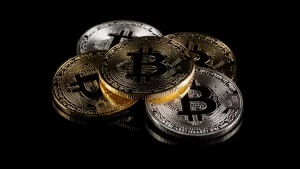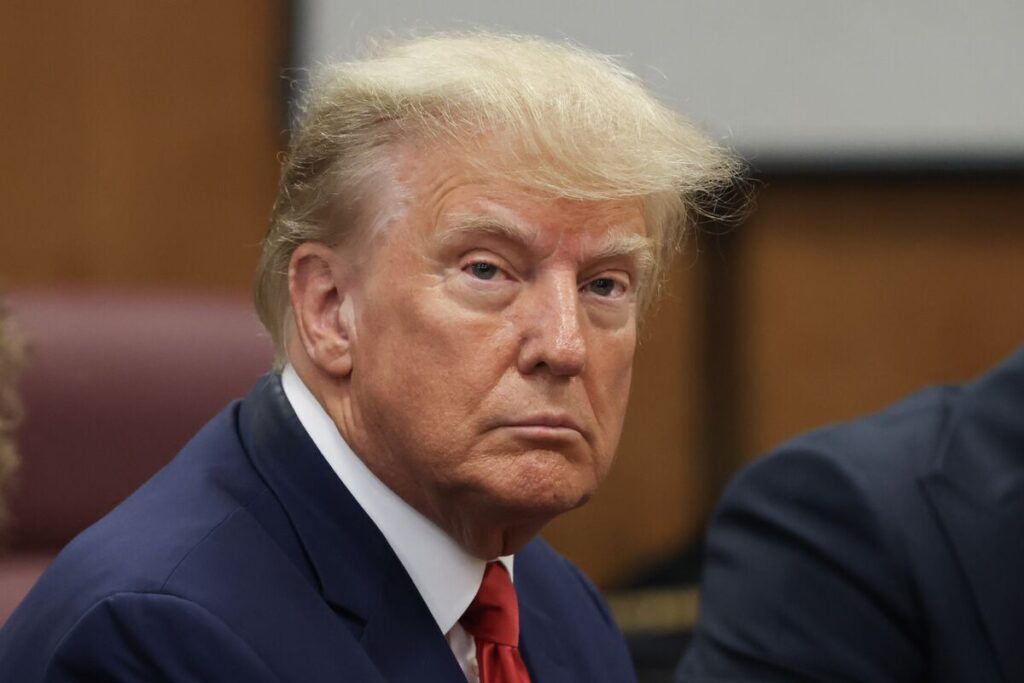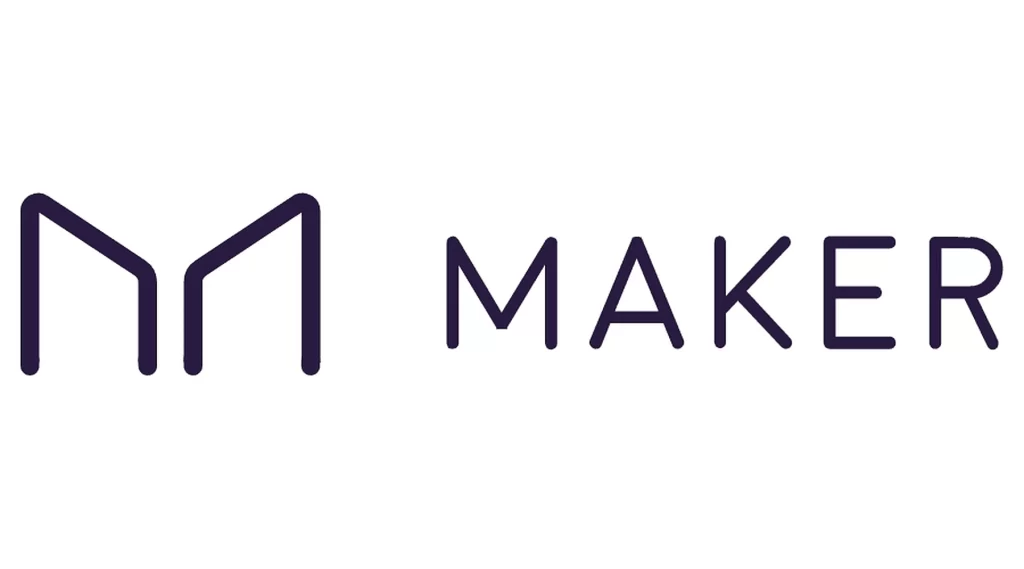A cryptocurrency wallet labeled by the German Government (BKA) has sold over $54 million worth of Bitcoin.
On June 25, the wallet executed three transactions, offloading a total of 900 Bitcoin. The first transaction, involving 200 BTC, was sent to the Coinbase exchange, while the second, also of 200 BTC, was directed to the Kraken exchange.
The third transaction, amounting to 500 BTC, worth over $30 million, was sent to an unknown wallet labeled “139Po,” as reported by Arkham Intelligence.
Although the identity of wallet “139Po” remains a mystery, it has previously interacted with the German government’s wallet.
On June 20, 800 BTC were transferred to “139Po,” following a 500 BTC transfer on June 19.
After the latest transactions, the German government-labeled wallet still holds 46,359 Bitcoin, according to Arkham Intelligence.
There are concerns that the German government’s actions might impact Bitcoin’s price, potentially pushing it below the $60,000 mark.
The wallet currently holds over $2.8 billion worth of Bitcoin, which could exert significant selling pressure.
Bitcoin’s price has been on a downtrend, dropping 11% over the past month and more than 7% in the past week, hovering just above $61,000 as of 9:40 am UTC, according to Bitstamp data.
Popular analyst Willy Woo suggests that Bitcoin might undergo a correction lasting up to four weeks before resuming its price rally.
READ MORE: TON Blockchain Faces Rising Phishing Threats Amid Explosive 2024 Growth, Experts Warn
In a June 22 post on X to his 1.1 million followers, he wrote: “Eyeballing this model… probably 1-4 weeks more of cooling down before #Bitcoin price action is sufficiently boring. Chart: Intensity of speculators playing casino games.”
On June 19, suspicions about potential Bitcoin selling were sparked when the government-labeled wallet transferred 6,500 BTC, valued at over $425 million.
The majority of Bitcoin from the government’s wallet is being sent to centralized exchanges, indicating potential sales.
Prior to these transfers, the wallet held nearly 50,000 BTC since February 2024, believed to be seized from the operator of the pirated movie website Movie2k.
Further selling pressure could arise in July, as the collapsed cryptocurrency exchange Mt. Gox announced it would start repaying its users.
Mt. Gox creditors, owed over $9.4 billion worth of Bitcoin, have been waiting more than ten years to recover their funds, which could add significant pressure on Bitcoin’s price.
To submit a crypto press release (PR), send an email to sales@cryptointelligence.co.uk.
Hong Kong-based crypto trading platform DFX Labs is nearing a full operational license after receiving clearance under the Anti-Money Laundering and Counter-Terrorist Financing Ordinance (AMLO).
According to public records from the Securities and Futures Commission (SFC) of Hong Kong, DFX Labs is “deemed to be licensed for providing the virtual asset service.”
However, despite holding an active AMLO license, the platform is not yet authorized to offer crypto trading services.
The records clarify:
“The Applicant is only deemed to be licensed for providing the virtual asset service below. The SFC has NOT granted a license to the Applicant under the AMLO.
The application for his/her license is still pending determination.”
DFX Labs applied for the Hong Kong crypto license on December 27, 2023, with Simon Au Yeung, the company’s chief operating officer, as the primary applicant.
The exchange was deemed to be licensed on June 1.
Currently, the DFX Labs website remains an unlicensed virtual asset platform and is unavailable for Hong Kong residents.
READ MORE: Bitcoin and Ether Transaction Fees Plunge Amidst Crypto Market Turmoil
Hong Kong is making concerted efforts to attract global startups.
Three government entities — The Hong Kong Economic and Trade Office in Toronto (Toronto ETO), Invest Hong Kong (InvestHK), and StartmeupHK (SMUHK) — recently co-hosted an event in Toronto to promote its offshore technology hub for Canadian crypto and Web3 startups.
Speaking at the event, Toronto ETO director Emily Mo highlighted the startup-friendly regulations, such as lower taxes compared to Canada, and Hong Kong’s willingness to collaborate with “pre-commercial specialist technology companies.” She emphasized:
“There is a creative mindset on Web3/virtual assets developments. Fintech, health technology, green technology and property technology, etc, are trending in Hong Kong and Asia these days.”
In May, Hong Kong mandated the shutdown of all crypto exchanges operating without a license.
Many crypto exchanges that had applied for an operational license eventually withdrew their applications. This list included prominent global players such as OKX, Huobi HK, and Bybit, among others.
To submit a crypto press release (PR), send an email to sales@cryptointelligence.co.uk.
Donald Trump is gaining favor as the pro-innovation candidate among key cryptocurrency and traditional finance (TradFi) players.
Cathie Wood, CEO of ARK Invest, is the latest high-profile investor to endorse Trump for the 2024 U.S. presidential election, stating she will vote for “who’s going to do the best job for our economy.”
Wood’s endorsement may further solidify Trump’s image as a “pro-growth and pro-business” candidate. Bitfinex analysts told Cointelegraph that Wood argues Trump’s economic policies, which emphasize reducing regulations and taxes, foster innovation and technological advancement.
She believes Trump’s policies will create a favorable environment for disruptive technologies to thrive, which is crucial for long-term economic growth.
Despite later requesting the removal of the interview due to a lack of nuance in her political views, Wood’s comments stand as a strong endorsement given her reputation as a leading tech investor.
Further bolstering Trump’s support in the crypto community, Gemini co-founders Cameron and Tyler Winklevoss have each pledged $1 million in Bitcoin towards Trump’s reelection.
In June 20 X posts, the Winklevoss twins declared their support for Trump, describing him as “pro-Bitcoin” and “pro-crypto,” while criticizing President Joe Biden for declaring “war against crypto” during his tenure.
The Winklevoss twins’ donation is seen as a significant endorsement within the crypto industry.
Bitfinex analysts noted, “This move signifies a growing perception of Trump as a pro-innovation candidate within the crypto and TradFi communities.”
However, part of the donation was returned as it exceeded the federal limit of $844,600 per individual. It remains unclear whether the excess amount was returned in Bitcoin or cash.
On May 21, Trump announced that his 2024 campaign would accept cryptocurrency donations, signaling a shift towards a more favorable stance on digital assets.
Bitfinex analysts suggest this alignment with crypto-friendly policies positions Trump as a preferred candidate for those advocating for regulatory clarity and support for blockchain technology and cryptocurrencies. Trump has even proclaimed himself the “Crypto President.”
READ MORE: Bitcoin and Ether Transaction Fees Plunge Amidst Crypto Market Turmoil
Trump’s potential reelection could usher in a more innovation-friendly era for the U.S. crypto industry, boosting mainstream adoption.
Bitfinex analysts speculate that a Trump administration might create a clear and supportive regulatory framework, encouraging innovation and investment in the crypto sector, potentially leading to increased adoption of digital assets and integration of cryptocurrencies into the financial system.
Jason Allegrante, chief legal and compliance officer of Fireblocks, emphasized that blockchain technology transcends political parties.
He told Cointelegraph, “What’s remarkable about the industry’s positioning in this election cycle is that it will continue to prioritize the cause of innovation first and foremost even as it wades back into electoral politics.
“Republicans may benefit more this November simply because many already seem to understand the issues.”
To submit a crypto press release (PR), send an email to sales@cryptointelligence.co.uk.
MakerDAO, a pioneering decentralized finance (DeFi) lending protocol and the creator of the stablecoin DAI, has announced a groundbreaking $1.35 million audit contest. This is the largest audit contest ever conducted in the DeFi space.
The contest will take place on the Sherlock Platform, a Web3 audit contest provider, and is an integral part of MakerDAO’s Endgame project, which is slated to begin in summer 2024.
Starting on July 8 and running until August 5, the contest aims to engage top security experts and new researchers to uncover potential vulnerabilities.
Endgame represents the final development stage in MakerDAO’s strategic plan. Its goal is to reform governance to achieve a self-sustaining balance, known as the Endgame State.
Rune Christensen, co-founder of MakerDAO, emphasized the importance of robust security for the Endgame launch:
“Rock solid security has always been a priority for MakerDAO. Over time, it’s become one of the defining features of the project.
“It only makes sense that the team would work with the market leader, Sherlock, to create a program to pressure test the system we’re building as Maker moves toward Endgame.”
A MakerDAO spokesperson, in a written Q&A with Cointelegraph, highlighted the rigorous security measures already in place:
“The Endgame products and features […] have been audited numerous times by multiple reputable auditing firms.
READ MORE: TON Blockchain Faces Rising Phishing Threats Amid Explosive 2024 Growth, Experts Warn
The audit contest is an additional way to test the system. It underscores Maker’s commitment to open source and security while giving integrators and builders a chance to get familiar with Endgame before it gets launched.”
Jack Sanford, co-founder of Sherlock, acknowledged MakerDAO’s dedication to security with this record-breaking contest. He elaborated on the contest’s setup:
“Sherlock has reserved some of the top security experts in the world for this contest, but many up-and-comers will undoubtedly make a name for themselves and show a strong performance in this historic contest.”
The decision to host the contest on Sherlock was strategic, as the MakerDAO spokesperson explained:
“Sherlock is a pioneer in auditing contests for crypto projects and they have a deep network of reputable security researchers. It only makes sense that Maker would seek to work with the best in the space.”
Before the contest begins, the top MakerDAO bug bounty hunters will provide an educational breakdown during the week of July 1.
This will include a code walkthrough with the MakerDAO team and “crypto legends.”
To submit a crypto press release (PR), send an email to sales@cryptointelligence.co.uk.
No matter if you are a crypto enthusiast and believe that it will revolutionize the world of finance or someone who thinks that it is total nonsense, we cannot deny the fact that cryptocurrencies already have a massive impact on many industries, including online casinos.
We’ve already seen casinos starting to accept cryptocurrencies in games as a form of gambling, and this has a much bigger impact than just another payment solution. First of all, cryptocurrencies unlock the global market and are perfect for navigating through the legal landscape of casinos. There are some people who use cryptocurrencies to bypass the process of geo-restrictions or payment gateway restrictions.
But are crypto casinos legal and are you safe engaging in such activities?
Let’s take a deep dive into the legal landscape of cryptocurrencies in online casinos and find out whether or not they are safe.
What Exactly Are Crypto Casinos?
Well, the name tells it all. A crypto casino is just like a regular online casino platform, but instead of traditional FIAT currency used in the process, people can wager using cryptocurrencies like Bitcoin, Ethereum, or other digital assets.
But what makes crypto casinos special? Is it just the different payment options?
As you probably already know, cryptocurrencies are built on top of a blockchain, therefore they come with more advantages such as anonymity, faster transactions, and in most cases lower fees (depending on the network).
The true difference between cryptocurrencies and traditional payments is the way transactions are processed. Unlike traditional online casinos where you have a middleman (the bank) processing transaction, cryptocurrencies are entirely independent and are sorted out on the blockchain removing the middleman. This often reduces processing times and lowers traditional bank fees.
Despite cryptocurrencies reaching billions of dollars in market cap, their legal framework governing the crypto industry varies across jurisdictions. In most cases, cryptocurrencies operate in the grey area and are not entirely regulated. This also includes online casinos that use cryptocurrencies.
The Current Regulatory Landscape
When it comes to crypto casinos, the legal aspect of operations depends on where you are in the world. Some countries like El Salvador have more favorable views over cryptocurrencies, and others try to block the process of legalizing cryptocurrencies.
Here are some of the regions and their views on crypto casinos:
United Kingdom
In the UK, we have the UK Gambling Commission (UKGC) that regulates online gambling, and to be honest, quite rigorously. This is not a bad thing. After all, their goal is to create a safe and fair environment where customers won’t be taken advantage of in any situation.
Even though we can spot that the UKGC is starting to acknowledge the use of digital currencies and their presence in online gambling, crypto casinos still remain in the gray area in terms of regulation.
Why? Well, their regulatory bodies have raised quite a few concerns, such as concerns over anonymity and potential money laundering. Therefore, if you want to open a crypto casino in the UK, Anti-Money Laundering (AML) and Know Your Customer (KYC) regulations are essential in order to get a chance to obtain a license.
United States
In the U.S. things are quite complex. The government has quite negative views on cryptocurrencies in general, although they recently approved the creation of a Bitcoin ETF, which opens the legal gate of cryptocurrencies in the country.
However, online gambling in the U.S. is based on a state level. Some states in the U.S. are allowing online gambling and casinos, and some states strictly prohibit online gambling. States like Nevada have legalized online gambling completely, including crypto gambling but they have to adhere to specific licensing requirements.
Therefore, opening a crypto casino in the U.S. is quite difficult. The crypto industry isn’t quite regulated and businesses need to navigate both federal guidelines and varying state laws to ensure compliance.
Malta
Malta is often a country where most online casinos go for obtaining a gambling license just because of their easy licensing process. Here we have the Malta Gaming Authority (MGA), which was one of the first regulatory bodies that started offering crypto casino licenses.
However, just because most casinos obtain their license through the MGA, it doesn’t mean that they don’t have to meet strict regulatory requirements.
Malta always had a progressive approach towards online gambling, which is why they were the first ones to integrate cryptocurrencies into their legal framework, just so the players could feel safe and protected.
Key Legal Considerations for Crypto Casinos
Licensing and Compliance
Although crypto casinos still operate in the grey area, obtaining a gambling license is very important not just for the business, but for the entire industry. People would feel safer, there would be fewer scams and frauds, and online casinos that use crypto open the future of the entire industry.
What’s the Deal With AML and KYC Regulations?
Furthermore, we have AML and KYC regulations, which are crucial for illicit activities such as money laundering. This is the main concern in terms of online casinos that operate with cryptocurrencies, and coming up with a legal solution or a framework can help the industry advance quickly.
Taxation and Reporting
Another important thing in the world of online casinos is taxes on the wins. In the United States, gambling winnings must be reported on specific forms in tax returns.
Now, the strange thing is that cryptocurrencies are still in the grey area, but they still want to tax your crypto winnings. So, all crypto transactions should be reported in order to avoid any legal problems in the future.
Memecoins have broken free from a week-long bearish trend in the crypto market, recording impressive double-digit growth over the past 24 hours.
While Bitcoin has been struggling to build bullish momentum, hitting a monthly low of $58,554 on June 24, most memecoins have experienced a trend reversal, showing significant gains.
Before this recent uptick, memecoins were among the biggest losers in the declining crypto market.
DOGECOIN followed the broader market trend, achieving a 2.4% price increase in the past 24 hours.
In contrast, Shiba Inu saw minimal progress with only a 0.15% gain on the daily chart.
The most significant beneficiaries of the bullish surge are newer memecoins that have emerged in recent months.
Solana-based Popcat (POPCAT) saw a remarkable 50% surge on the 24-hour chart, while Mog Coin (MOG) experienced a 39% price increase.
READ MORE: Bitcoin and Ether Transaction Fees Plunge Amidst Crypto Market Turmoil
This recent rise in memecoin prices has not only reversed the market trend but also brought memecoins back into the spotlight after many predicted the end of the meme token frenzy following the recent dip.
Dogwifhat (WIF), a memecoin that made headlines earlier in 2024 after reaching a $4 billion market cap, fell to $1.47 earlier this week, marking a multi-month low.
However, on June 25, the memecoin surged over 25%, recovering the majority of its losses from the past week.
The token’s price rose from a daily low of $1.47 to a daily high of $1.94, trading at around $1.83 at the time of writing.
In addition to WIF, Pepe was another major memecoin in the top 50 crypto rankings by market capitalization to post double-digit growth in the past 24 hours.
PEPE’s price increased from a daily low of $0.00001028 to a daily high of $0.00001198, reflecting a 13% surge over the past 24 hours.
Floki (FLOKI), another popular memecoin this season, recorded an 11% growth, while Bonk (BONK) saw a 16% surge.
To submit a crypto press release (PR), send an email to sales@cryptointelligence.co.uk.
Predicting the future is an inherently tricky business, whether you’re trying to forecast political events or the fluctuating prices of cryptocurrencies. Each has its own set of complexities and unpredictable elements that make accurate forecasting a formidable task. Let’s delve into the factors that make political events and cryptocurrency prices such challenging arenas.
Political Events: The Unpredictable Human Element
Forecasting political events involves understanding a multitude of factors, many of which are deeply intertwined with human behaviour. Elections, for example, are influenced by public opinion, which can be volatile and subject to rapid changes. Polling data, while useful, can sometimes be misleading due to sampling errors, respondent biases, and the dynamic nature of political campaigns.
In the UK, political betting is quite popular, and those engaging in it often rely on polling data, historical trends, and expert analysis to make their predictions. Some sites, dedicated to political betting UK and other markets provide the data needed to make informed decisions.
However, unexpected events such as scandals, economic shifts, or major policy announcements can dramatically alter the political landscape overnight.
Furthermore, the influence of social media and fake news adds another layer of unpredictability. Despite sophisticated models and extensive data, the inherently unpredictable nature of voter behaviour means political forecasts are always subject to a significant degree of uncertainty.
Cryptocurrency Prices: The Wild West of Finance
On the other hand, predicting cryptocurrency prices presents a different set of challenges. Unlike traditional financial markets, cryptocurrencies operate in a largly unregulated environment, which can lead to extreme volatility. Prices can be influenced by a myriad of factors, including market sentiment, technological developments, regulatory news, and macroeconomic trends.
For instance, a single tweet from a prominent figure can send prices soaring or plummeting. This was evident when Elon Musk’s tweets about Bitcoin and Dogecoin led to significant price movements.
Additionally, the crypto market operates 24/7, meaning that price fluctuations can happen at any time, often driven by global events and the actions of a diverse set of market participants. The decentralised nature of cryptocurrencies also means that they are less susceptible to the kinds of regulatory interventions that can stabilise traditional financial markets.
Comparative Complexity and Volatility
When comparing the two, it’s clear that both political events and cryptocurrency prices present significant forecasting challenges, albeit for different reasons. Political forecasting is heavily reliant on understanding human behaviour and the social, economic, and political context, while cryptocurrency forecasting must account for technological factors, market sentiment, world events, and regulatory environments.
Despite these differences, both require a keen understanding of the underlying factors and an ability to interpret complex data. For those looking to navigate these waters, it’s crucial to stay informed and adapt to new information rapidly.
While both political events and cryptocurrency prices are challenging to forecast, they require different skills and approaches. Political events hinge on understanding human behaviour and social dynamics, while cryptocurrency prices demand a grasp of market sentiment and technological trends. Regardless of which domain you’re interested in, the key to better forecasting lies in continuous learning and staying abreast of the latest developments in your area of interest.
Tokyo-based investment and consulting firm Metaplanet plans to issue 1 billion yen ($6.26 million) in bonds to raise funds for buying Bitcoin.
The firm’s board approved this move, stating that the Bitcoin will be held for the long term. Additionally, a separate notice mentioned that the bonds would offer an annual interest rate of 0.5%.
On Monday, Metaplanet’s shares rose by 11.5%, reaching 96 yen ($0.60). This increase continues the stock’s impressive over 500% gain so far this year, according to Google Finance.
In contrast, Bitcoin has recently hit a 40-day low, dropping 2.6% in the past day to $62,733 after nearing $72,000 in early June, according to CoinGecko data.
If Metaplanet were to purchase 1 billion yen worth of Bitcoin at current prices, they would acquire nearly 100 BTC, approximately 99.84 BTC.
READ MORE: Softbank CEO Predicts AI Will Be 10,000 Times Smarter Than Humans by 2035
This planned acquisition will add to Metaplanet’s existing crypto holdings, which reached 141.07 BTC after the firm bought 23.25 BTC on June 11.
Metaplanet initially purchased 117 BTC in mid-May, adopting a “Bitcoin-first, Bitcoin-only approach” in response to Japan’s ongoing economic pressures.
At the last holdings report in early June, Metaplanet’s average purchasing price was 10.28 million yen ($65,365) per Bitcoin, indicating that the firm is currently underwater with its strategy.
Metaplanet’s aggressive Bitcoin buying and the resulting surge in its stock price have led to comparisons with America’s MicroStrategy.
The U.S. software company holds the record for the most Bitcoin holdings by a public company, with 214,400 BTC worth $13.4 billion, according to Bitbo data.
To submit a crypto press release (PR), send an email to sales@cryptointelligence.co.uk.
The Open Network (TON), a blockchain platform linked to Telegram, is facing increased phishing attacks, according to a blockchain security expert.
The founder of SlowMist, a blockchain security firm, has highlighted the surge in phishing activities targeting the TON ecosystem, which includes various decentralized applications (DApps) and tokens.
“There are more and more phishing activities in the TON ecosystem,” SlowMist founder Yu Xian wrote in an X post on June 23.
Xian explained that the vulnerabilities within the TON ecosystem stem from scammers’ easy access to message groups, where they disseminate phishing links.
He stated, “The Telegram ecosystem is too free, and many phishing links — or bot forms — are spread through message groups, airdrops, and other deceptive methods to lure away users’ TON wallets in batches.”
Users on Telegram who use anonymous numbers are particularly vulnerable.
These anonymous numbers, which are not tied to SIM cards, were introduced on Telegram in late 2022, allowing users to log in using blockchain-based anonymous numbers available on platforms like Fragment.
“If these are phished away, it means that the corresponding Telegram account may also be lost, unless the user has enabled an independent password, or two-step verification,” Xian noted.
The surge in phishing attacks coincides with significant growth in the TON ecosystem.
The total value locked (TVL) in TON projects has increased by 4,500% in 2024, reaching $648 million, according to DefiLlama data.
READ MORE: Binance Aids BtcTurk in Cyber Attack Investigation, Freezes $5 Million in Stolen Funds
The TON ecosystem now hosts 43 tokens with a combined market capitalization of $19.2 billion, as per Bitget data.
A notable driver of this growth is TON’s native cryptocurrency, Toncoin (TON), and the play-to-earn token Notcoin (NOT), which have gained popularity among Telegram users.
Clicker games and tokens like Notcoin have become significant contributors to the ecosystem’s expansion in 2024.
Amid this rapid growth, security experts have repeatedly warned about the increasing risk of phishing and scam attacks.
In April, cybersecurity firm Kaspersky alerted the public to a major scam targeting TON ecosystem users.
This scam involves unofficial Telegram bots that steal users’ coins by linking their Wallet, a third-party cryptocurrency wallet on Telegram, to the bot system.
Cointelegraph reached out to the TON Foundation for comments on the rising phishing attacks but did not receive a response at the time of publication.
To submit a crypto press release (PR), send an email to sales@cryptointelligence.co.uk.
Bitcoin and Ether transaction fees have fallen to their lowest levels in months amidst one of the harshest weeks for the crypto market in 2024.
As of June 23, the average Bitcoin transaction fee dropped to $1.93, the lowest since October 2023. This decrease indicates reduced network activity and competition.
Bitcoin network transaction fees typically surge during high market volatility, particularly when prices rise. Increased price speculation leads to greater competition for block space.
Historically, every major bullish period since 2012 has seen a rise in fees, except during the 2021 bull run when Bitcoin’s price reached $69,000 but fees remained relatively stable.
Ether gas fees have also plummeted to new lows, with prices reaching as low as 1 gwei, the lowest in years. Currently, the gas fee on the Ethereum network is about 4.5 gwei.
Gwei, a denomination of Ether, is used on the Ethereum network for transactions. One gwei equals one-billionth of one ETH.
The significant drop in Ethereum gas fees is linked to activity shifting from Ethereum’s base layer to its layer-2 network following the March Dencun upgrade.
READ MORE: Mark Cuban Falls Victim to Hoax Call, Loses Gmail Access Months After Crypto Wallet Hack
Since the upgrade, average gas prices on Ethereum have fallen by about 92%. According to Layer2 Insider, layer-2 networks earned $950,000 in the past week.
The reduced transaction fees on Bitcoin and Ethereum come during one of the worst weeks for the crypto market in 2024. Bitcoin’s price fell below the $63,000 support level, and several altcoins suffered double-digit losses.
The crypto market has experienced significant growth over the last six months, with top cryptocurrencies like Bitcoin and several altcoins reaching new all-time highs.
However, in recent weeks, bears have dominated, liquidating billions in the leveraged market and causing heavy losses for spot holders.
To submit a crypto press release (PR), send an email to sales@cryptointelligence.co.uk.












